Everything you need, at a glance
Our Insights are detailed and well researched. They keep a pulse on what’s happening in the market and allows you to stay ahead of the curve.
Sign up to our newsletter to get exclusive insights and never miss an article.

The UK is a very attractive place to work, but working there after Brexit has become a confusing and difficult process.
The UK is a really great place to work and live and has always been the prime destination for European ex-pats. However, due to Brexit taking effect at the beginning of 2021, moving across the Channel is not the most straightforward process anymore. Information on how to relocate to the UK is hard to find, and the resources on gov.uk are plentiful but confusing if you’re looking for high-level guidance.
Working with businesses across the world, here at Movemeon we thought we needed to provide you with actual guidance on how to understand the situation better. We asked the Home Office our most Frequently Asked Questions and added to their answers some tips that we reckon will be useful to all European professionals looking to work in the UK after Brexit.
Are you an employer wondering about hiring EU citizens? Read our brief guide to understand visa sponsorship better.
Changes brought on by Brexit
But first, let’s talk about what changed since Brexit happened. It’s important to note that an agreement over the rights of EU citizens living and working in the UK was a precondition of progress in the negotiations over the UK leaving the EU. What this means is that it’s a lot easier to move to the UK as a EU citizen than another country in the world. Regulations have become more relaxed to make it easier for employers to sponsor foreign colleagues.
When does the visa process start?
Visa considerations should only be undertaken once a candidate has been selected for the role. So you don’t need to apply for a Tier-2 visa until you’ve accepted the job offer. Employers can register as Licensed Sponsors beforehand (that’s why some job descriptions state that they offer visa sponsorship), or after they’ve made an offer to an applicant but this will considerably lengthen the process.
Can I relocate with my family?
It’s dependent on the type of visa you’re on but most professionals are on the Tier-2 visa, which means you can bring your spouse and/or children with you. Procedures for their visa can be dealt with at the same time as yours, so you don’t need to necessarily worry about a delay.
Can I work remotely from outside the UK for a UK employer?
Yes, you can! UK visas are not required for those working outside the UK for UK-based employers. This is great news, especially considering the growing number of remote and/or flexible roles we see on Movemeon.
I’m a freelancer - how does it work?
There are different routes that you can use, depending on the circumstances of your employment in the UK. For example, if you’re interested in taking part in our pro bono initiative, you can apply for a Charity Work visa. In any case, you will need your employer to sponsor you to apply for a temporary work visa.
What if I don’t have a job offer lined up?
You can still apply for visa routes to relocate to the UK! Do you know about the Global Talent visa? As a leader in Digital Technology (a Fintech professional for example), you can apply for this visa which will allow you to be self-employed or an employee in the UK and enjoy relative freedom of what you can do. You don’t need a job offer lined up, but you need to be able to prove your expertise in the field.
You can also apply for the Innovator visa or the Start-up visa if you are an entrepreneur with an innovative business idea. However, you will need some form of endorsement or sponsoring in both cases but not as an employee.
How much does it all cost?
Applications costs vary widely depending on the type of visa you’re applying for. For example, the Charity Worker visa costs under £250 whereas the Innovator visa costs over £1,000 (per person, if you’re coming with your spouse and/or children).
If you’re on a Tier-2 visa (the most frequent), fees can vary between £600 and £1,400 depending on your circumstances (industry, function, etc.). You also need to prove you have at least £1,270 to support yourself once you are in the UK. But please bear in mind that your employer is very likely to be able to help with the costs we’ve mentioned.
Other helpful tips
If you’re coming to work in the UK temporarily (for up to 2-3 years) you won’t need to pay social security in the UK, but in your home country where you’ll need to request a certificate in some instances. That’s useful to know if you’re relocating to the UK with your current EU-based company.
Subscribe to our newsletter below to never miss out on any of our exclusive insights!

Today we're taking a look at the current War for Talent and how 2021 was the perfect storm for consulting.
At Movemeon, we are privileged enough to sit at the intersection of disruption in the consulting industry: Speaking with senior leaders in consulting firms of all sizes, as well as with thousands of ex and current consultants themselves. Over the course of Q4, we will share some of our insights and offer our view on some of the major trends shaping the industry. This week, we're taking a look at the current War for Talent and how 2021 was the perfect storm for consulting.
Request your free copy of 2021 Work & Pay Report, Understanding the Impact of Covid, here.
The war for talent in consulting is nothing new: In the last year alone, our work in the consulting space grew from 17% to over 40%.
Consulting demand has always been predicated on the need for additional capacity or capability. We hear time and again from consulting clients of all sizes that they simply don’t have enough people to staff their pipeline of work. We specialise in placing people with strategy consulting backgrounds. And sometimes clients want just that: a great strategist who can take a problem and figure out how to fix it, quickly.
But the pandemic has heightened the need to access expertise in high-growth areas such as supply chain, digital strategy and data analytics and we see this reflected in increasingly specific requirements from clients for very exact capabilities.
So what can you do when you’re faced with pressure on both these fronts and need to augment both capacity within your team, as well as plug capability gaps? Here are our top three tips:
- Think flexibly about your current workforce: If you’re lacking critical expertise or capabilities, can these be taught and your employees upsilled quickly? Not only can this plug any gaps but gives employees a clear progression path and will likely support retention
- Consider freelance support: many consulting firms are putting in place virtual ‘benches’ to augment permanent teams from both a capacity and capability perspective. At Movemeon we’ve helped many firms put these in place - you can read about it here
- Hire ahead of the curve: Don’t wait until you really need people. If the pipeline of work is there, the pipeline of talent needs to be there too. We don’t just support clients making specific placements. We can work with you to keep a talent pipeline open and allow access to a steady stream of exceptional candidates.
Whether you simply need more people, experts, or both, we can help. Get in touch with us here, we have offices in Europe (UK), APAC, and soon the US!
Subscribe to our newsletter below to make sure you keep up-to-date with our exclusive insights:

In Q3, Movemeon worked on twice as many roles as the same period last year. What were the most popular functions this year?
In Q3, Movemeon worked on twice as many roles as the same period last year. This is an accurate representation of the continued growth we are privileged enough to see in 2021. We talk to many hiring managers and candidates looking for their next steps, in various industries and at different seniority levels. In this instalment of our Market Trend Series, we’re taking a look at the most popular functions and job titles on Movemeon this year.
Do you have some consulting experience and are looking for your next step? Register on Movemeon to explore 350+ opportunities across the world for consultants or ex-consultants.
Global Trends
Globally, the most highly sought-after functions on Movemeon this year are the following:
- General Management (P&L, Team)
- Operations
- Programme, Project & Change Management
- Strategy
Of course, strategy will always be the most important function when it comes to recruiting candidates who have some experience in consulting because that is where they excel. Strategy experts are especially wanted in high-growth companies, Private Equity and Venture Capital funds, as well as Boutique Consultancies. But consultants are also highly sought-after to manage a team or a company’s P&L thanks to their exposure to similar projects in their consulting missions. As a result, more junior consultants make for great project and change managers and companies are eager to recruit talent with the consulting toolkit for such positions.
Tech & Startups
Interestingly, hiring managers in Private Equity and Venture Capital funds, Boutique Consultancies, and in the Public Sector are especially interested in Project & Change Managers. This can be explained by the fact that more and more of these companies are focusing on digitalisation and automation of their processes. 2020 was a real wake-up call for many businesses as they were forced to digitalise their activity to fit the evolution of consumers’ needs, as more and more people relied on online solutions and products while stuck at home.
Freelance
According to the Chartered Institute of Personnel and Development (CIPD), 39% of employers find themselves with ‘hard-to-fill’ vacancies. Companies in business services are just under this average with 36% of the sector with ‘hard-to-fill’ positions.
While a common long-term solution to this talent shortage is to upskill current staff, when companies need a more immediate fix, they resort to freelancers. Contractors are also the best solution for employers who face uncertainty and need a short-term solution with highly flexible talent.
Operations & Supply Chain
Candidates with experience in Operations are in high demand in startups in various stages as well as, unsurprisingly, consumer goods organisations. We don’t expect this demand to decrease anytime soon due to the supply chain shock this year. Companies know that, in the future, they will need to take rapid actions when unexpected and sudden changes occur. So companies need to consolidate their Operations and Supply Chain systems to make sure they can deal with any crisis in the face of uncertainty brought on by the pandemic, Brexit or both!
Subscribe to our newsletter below to never miss out on any of our exclusive insights!

This year we have posted 13 times more consulting roles than during the whole of 2020. Why is consulting on the rise this year?
Over the past year, we published over 350 roles for consultancies. In fact, we have posted 13 times more advisory roles than during the whole of 2020. At the same time, we’ve also found that 20% of ex-consultants now working in industry are looking to go back into consulting. In this instalment of our Market Trend series, we’re trying to find out why consultancies have been hiring so much more this year.
Are you a consultant looking to read more about the latest industry trends and insights? Subscribe to our newsletter to make sure you never miss out.
Why is the demand for consultants on the rise?
Consultancies have always been eager to acquire new talents, but the pandemic has increased their need to get new people fast and in great numbers. Many businesses put their consulting projects on hold out of caution at the beginning of the pandemic in 2020. After lockdown, they were able to resume their various projects with consultancies as well as new projects. It's especially the case in high-growth areas such as supply chain, digital strategy and data analytics. These have been the most requested requirements from our consulting clients this year, given the digital shift for businesses and the global population that took place over the pandemic.
This is very logical but the situation that consulting firms are facing at the moment is quite unique. These firms are always cautious to have a perfect employee/project ratio. Therefore they are incredibly vulnerable to talent shortages if they experience a sudden surge in project demands. In just a few months, Movemeon’s work in the consulting space grew from 17% to 40%. This highlights the rapid need firms have for new talent to meet their clients’ demands in the risk of having to turn down work times and times again.
A global talent crisis
Another strain on firms, and a reason why consulting is in such high demand at the moment, is an overall talent shortage crisis. Many jobs are created and many people leave their current employment, but there aren't enough candidates to fill those vacant positions. Usually, businesses tend to resort to freelancers and/or consultants to quickly compensate for skill shortages. Consultancies can provide experts more readily than businesses can hire a full-time team member. This is especially true now since consulting fees were lowered in the past year. However, clients have high demand in terms of expertise and consultancies need to adapt to these demands. They can no longer sacrifice depth of expertise for readily available teams of generalist consultants. Instead, they need to provide readily available teams of actual experts with the appropriate capability.
A need for both Expertise and Flexibility
This can also explain why we have seen so many boutique consultancies getting in touch with us to hire for their team. They’re building up teams of experts that have the capacity to react swiftly to clients’ demands – whether they’re in a freelance capacity or joining the firm full-time. Over the 350 jobs posted this year in consultancies, nearly 75% were in boutique consultancies and the ratio between permanent and interim positions was roughly proportional. Interestingly, both boutiques and larger firms were mainly looking for Associates and Managers level – consultants ready to hit the ground running in terms of projects, with roughly between 3 to 8 years of previous consulting experience, these seniorities accounted for about 70% of the roles we helped consultancies to hire for in the past year.
Subscribe to our newsletter below to never miss out on any of our exclusive insights!

We open our series on 2021 Consulting Trends and share our insights from leaders in consulting firms of all sizes, and consultants themselves.
At Movemeon, we are privileged enough to sit at the intersection of disruption in the consulting industry: Speaking with senior leaders in consulting firms of all sizes, as well as with thousands of ex and current consultants themselves, we see how clients’ needs are evolving, which firms have kept pace with digital transformation, and how delivery mechanisms are changing - all within the context of political and macroeconomic uncertainty.
Request your free copy of 2021 Work & Pay Report, Understanding the Impact of Covid, here.
Over the course of Q4, we will share some of our insights and offer our view on some of the major trends shaping the industry. As 2021 draws to a close, it seems like a great opportunity to reflect on the changes brought on by the pandemic and the solutions consultancies have resorted to, or the measures they may need to take in the future.
Over the past 9 months alone, we saw a surge in demand from consultancies of all kinds on our platform. So much so that we posted 13 times more advisory roles than during the whole of 2020. If you’re interested in finding out why, you can read our latest insights and industry experts' interviews on our website.
Read our whole series below:
Subscribe to our newsletter below to make sure you keep up-to-date with our exclusive insights:

Cover notes are still relevant, here's why and some tips on how to break away from the traditional cover letter.
A quick Google search will show you that the existence of the cover letter or not is constantly put into question. Are cover notes still relevant? Do employers even care about them? In this article we explain why they are still relevant, although at Movemeon we prefer to speak of an elevator pitch, but how you can write an efficient and modern elevator pitch to secure your dream job. We also share some tips to write a perfect CV using consulting skills.
The importance of a cover note
Cover notes are sometimes considered optional. At Movemeon, we don’t think they are - but neither do we like the traditional cover note approach, that's why we speak of elevator pitch rather.
Your elevator pitch is what separates you and your skills from other candidates with basically the same CV. It’s a chance for you to show and tell where you have delivered. For instance, if you have worked on an interim project with a major client, your elevator pitch gives you the space to flesh out your achievements, and why they are relevant for this application.
The cover note is the main way of separating out the strengths of two people’s candidacy – you can use your elevator pitch to show exactly why this experience makes you the best for the role.
It is important to remember that Movemeon is a network of candidates with excellent skills and experience. As one of our members, you have a really strong professional and academic background. It’s also very likely that you have been through some form of consulting experience in your career – maybe you’re still working as a consultant as you read this. You belong to a great community of extremely skilled professionals on Movemeon, but this can also mean that your profile might be similar to other candidates’. The elevator pitch is the main way of separating out the strengths of two people’s candidacy – you can use your elevator pitch to show exactly why this experience makes you the best for the role.
How the Movemeon Client Success Team uses the elevator pitch
Cover notes help the Movemeon Client Success team to do two things. First of all, we can write a clear summary of your approach in your own words. If we only have a CV to look at, this is more difficult to do because we don’t have your experience, and don’t know how you would describe it and what else you would say about it. An elevator pitch really helps us to come with an initial shortlist of candidates to present to employers.
Second of all, your elevator pitch makes it much easier for us to get you, as a candidate, into the interview process. Think of the elevator pitch as a sales crib sheet, or a selling aid to the client. If a candidate has gone the extra mile for us as a Client Success team to help themselves to really stand out, then it makes our job of presenting that candidate to an employer a lot easier.
What you should put in your elevator pitch
- A CV can be a very limiting document because it is essentially a list of skills and achievements, your cover note gives you the opportunity to explain why you are applying to this specific role and what motivates you to get this job as an individual.
- You need to choose what you include carefully to fit with the role’s requirements and with your personal goals – this is the best way to show your own personal motivation for a job.
A CV can be a very limiting document because it is essentially a list of skills and achievements, so it can be difficult to build a bridge between this document and somebody’s personality.
- The elevator pitch is not about bringing your CV to life, but rather bringing your experience vis-à-vis the job requirements to life.
- Consulting is very impressive experience in and of itself, but it might not necessarily be particularly relevant for the position you’re applying for – focusing on a couple of missions in your elevator pitch can bring more relevance to your experience.
- Focus your experience on what the company has asked for and keep to the point so that you can communicate your motivation efficiently.
- If it helps, you can think of your elevator pitch as your own personal sales pitch.
Some methodology points
- Presentation has far less importance than the actual content. We often see that the best elevator pitches are the ones written in bullet points.
- Ask yourself why and how are you the best for this specific role in this particular company?
- There isn't a length guide, but the best ones our Client Success team has seen were about 150-200 words.
It really doesn’t need to be a long document for it to be great.
- The content of the pitch needs to be presenting your strengths in the most relevant manner.
- Always think of the reader as you write your elevator pitch. You need to present yourself in the best light possible, and ensure that your candidacy is very strong.
- As you write, take into account that you will be read by a hiring manager and the Movemeon Client Success team who will receive many more applications.
In summary, keep it concise, keep it to the point, keep it lively. And make sure that it's really accurately answering the question. We tend to recommend going for a bullet point model, but there’s nothing wrong with injecting a bit of flair into your writing.
Mistakes to avoid
- Avoid classic copy paste errors. We've seen quite a few copy errors where people have mentioned the wrong company or forgot to remove their placeholders. This is the sort of thing that definitely needs to be avoided because it doesn't look like a particular level of care has been taken over applying to a specific brand or job.
- Just make sure that the covering note shows that you've invested in yourself and invested in the brand that you're potentially going to be working for.
In case of doubt, just focus on what the job wants and what you can bring to it and who you are.
- It’s really good to make sure to keep it grammatically tidy and run spell check through it. Good proofreading is essential.
- Avoid mis-researching what you're going to be writing. There's been a few cases where we’ve seen people present addressing the wrong stakeholder, the wrong hiring manager, or the wrong company. The advantage of the Movemeon elevator pitch is that it's a box that you fill, so it’s a very simple format which does not call for the traditional letter format. In case of doubt, just focus on what the job wants and what you can bring to it and who you are. You need to be absolutely sure of the facts you mention, and make sure that you've got a hundred percent confidence in that information.
Subscribe to our newsletter below to never miss out on any of our exclusive insights!

Endeavour will officially separate from its parent Woolworths Group in July 2021, when it will be Australia's leading retail drinks and hospitality business.
Tell us a little about your early career.
After completing my Bachelor degree in manufacturing engineering, I joined Hershey’s in India, who were also just setting up operations in the sub-continent. I started in candy manufacturing, moved to trade sales and distribution, and then stepped up to manage primary logistics and planning for multiple product categories. Given the early stage of the business, I was exposed to a number of different functions and was able to really get under the skin of the business.
I then pursued a two-year MBA degree at the Indian Institute of Management (IIM), which included a summer internship with Amazon in their customer experience and analytics team for North American markets.
After my MBA, management consulting appealed to me as the next career move. I had developed a strong understanding of the FMCG sector, but I was keen to broaden my skills and experience. I joined Deloitte Consulting in their strategy and operations practice in India. The role was truly global, with consultants jetting off to every part of the globe - supporting US-based clients in their local and international operations (air miles and points galore!!).
I spent my first 2.5 years with Deloitte in the US, where I worked across multiple verticals in strategy, M&A and change management. I then spent another 3 years between Japan, Taiwan and India, with retail and consumer product clients.
Then the final piece of the puzzle - moving to Australia! My wife wanted to do an MBA, and decided to study in Sydney at AGSM (UNSW). Again Deloitte supported my move and I worked in Australia on some great projects.
After close to 7 years with Deloitte, I began to think about what my next career step would be. A client-side opportunity with a business in the consumer goods space felt ideal, considering my interest and experience… which is why the opportunity with Endeavour Group on Movemeon was definitely one to explore!
How have you enjoyed the first few weeks of your new role?
It’s been an incredibly busy time at the Group, but it’s been really enjoyable so far. Not only is the time of year busy, being in the middle of strategy formulation and cascades throughout the business, but we’re getting to the final stages for separation from Woolworths. The team is great, a mixture of ex-consultants and investment bankers, and I am very excited about the next few months, as we establish ourselves as a new entity.
[Endeavour will officially separate from its parent Woolworths Group in July 2021, when it will be Australia's leading retail drinks and hospitality business and an ASX50 company.]
What’s your best piece of advice for consultants looking to move into client-side roles?
Ideally 3-4 years into consulting, and once you have fine-tuned your consulting 101 skills, it may be worth aligning to a smaller number of industries that you are most passionate about. In my personal experience, potential employers resonated more with experience in a similar industry, rather than functional expertise across multiple industries.
What’s your best piece of interview advice?
Make sure you work on your own personal “sell story” as part of the application process. Why are you a great fit, based on your skills and experience? Also give the interviewer the confidence that you can jump in and add value straight away. This can be anchored on your familiarity and past experience in a similar industry.
How did you find out about Movemeon?
Pete [Asia-Pacific General Manager at Movemeon] invited me to join - I’m glad he did!
Would you recommend looking for opportunities through Movemeon? Why or why not?
Yes. The key is that Movemeon offers a curated experience. The roles are so much more focused and relevant, you know you won’t be wasting time scrolling through a bunch of irrelevant opportunities.
Also you can be confident that the Movemeon team will be supportive throughout the process, compared to a job board where you could apply and then never hear anything again...
At Movemeon, we connect (ex)consultants and freelancers with job opportunities, advice & events. Register now to view and apply to jobs, for insider advice & networking/industry events.

Freelance consulting the pros and cons. Click here for insight into freelance consultants' day rates and how much recruitment agencies take.
You’re coming to the end of a freelance consulting project, it’s been fun – great team, challenging work, key milestones reached. You found the project through a recruitment agency. The client pulls you aside one day and asks if you’d be willing to lower your day rate and extend for some follow-on work. You take a minute, consider the request and push back to say that you’re working at the lowest possible rate…
At Movemeon, we connect strategic & commercial professionals, including consultants/alumni, with perm & freelance opportunities.
View all roles and register for free here.
You’re crunching the numbers in your head, trying to rationalize the request. Realizing the conversation has taken a slightly awkward turn – to date, it’s only been about project success and Friday beers; not about the money – you muster up the courage and ask the client why you can’t continue at your current day rate. After a brief pause, they say, ‘because every day I keep you on site it’s costing me X, you certainly don’t come cheap!’.
You’re now slightly embarrassed and taken aback by the figure and you suddenly realize what your total cost to the client really is. After a moment to collect your thoughts, you work out that a large portion of that total cost is going to the recruitment agency that placed you. Frankly, you feel a bit robbed.
What is the mark-up a recruitment agency is charging on me?
Unfortunately, the conversation above happens far too often too many of the freelancers I speak to. They often overlook one of the key questions that should be in every freelancer’s arsenal when negotiating day rate – ‘what is the mark-up a recruitment agency is charging on me’? The answer is often a surprise and a shock too many – to hear that a recruitment agency is taking anywhere up to 100% of the value of your day rate for each day you work is not only unfair, but it’s also plain wrong.
Naturally, there is an ongoing facilitation fee for the service a recruitment agent has provided – but, like with so many other areas of recruitment today, the lack of transparency around the total mark-up simply enhances the unease many candidates feel when working through an agency.
Transparency first
That’s why, here at Movemeon, we are insistent on providing full transparency around what our fees are, helping you avoid awkward conversations like the one above! Firstly, through Movemeon, you will negotiate and agree your day rate directly with the client.
There is no middle man involved and Movemeon has no influence. Movemeon then charges a commission which is paid by the employer, rather than being taken off the rate you agreed. So, you get a day rate you’ve negotiated and are happy with.
Everyone knows what’s going on. And the client saves up to 75% compared to the commission paid to recruitment agencies.
Looking for your next freelance opportunity?
Click here to have a look at our live jobs
Not a member yet?

Paul, People Director at Liberty Global explains why a Movemeon subscription was an obvious choice for Liberty Global's hiring needs
Economically, a Movemeon subscription makes complete sense.
WHAT HAVE YOU LIKED ABOUT HIRING THROUGH MOVEMEON?
Working with Movemeon has further educated us on recruiting for the ex-consulting experience. They have helped refine our selection criteria and the consultancies or projects we should be looking for. We still have a lot of learning to do, but now we have learnt a lot more about what we are looking for and how to attract that skillset.
I give the support received from Movemeon 10/10 - there is nothing else I could have asked for or wanted.
Every CV on Movemeon has something to offer
Email us at info@movemeon.com if you'd like to find out more about our subscriptions
WHAT MAKES US DISTINCTIVE / STAND OUT FROM OTHERS?
The quality of candidates has been so much higher than we’ve seen after a general push into the market using something like LinkedIn. Movemeon has a bigger pool of relevant candidates; every CV on Movemeon has something to offer.
Also, working with Movemeon is not a selling-type relationship. Because we have an annual subscription, the financial discussion is out of the way. It’s now more about collaboration. Gaby (Client Success Manager for Liberty Global) especially has been incredible - she’s really proactive and always really quick to reply. I had some early trouble with the system, and she was really patient talking through it. Really appreciated!
WHY DID YOU CHOOSE OUR SUBSCRIPTION PRODUCT?
It’s a product that makes sense to companies that have hiring teams internally.
We looked at what we would pay a recruitment consultant and reckoned if we filled 2-3 roles in 12 months, it’d already paid for itself. So economically, a Movemeon subscription makes complete sense.
OPERATIONALLY, IS THERE ANYTHING ELSE THAT WOULD HAVE BEEN HELPFUL?
When briefing on roles, there was a great blend of listening and asking relevant questions. Recruitment consultants usually either bombard you with yes/no questions or you can tell they aren’t listening because they already have candidates in mind. That doesn’t happen with Movemeon.
INTERESTED IN A MOVEMEON SUBSCRIPTION? CONTACT US TO FIND OUT MORE
Curated opportunities, for the leaders of today & tomorrow
Exclusive jobs, projects & data-driven insights to support your career success.
Join your peers & create a free account. Discover roles in under five minutes.


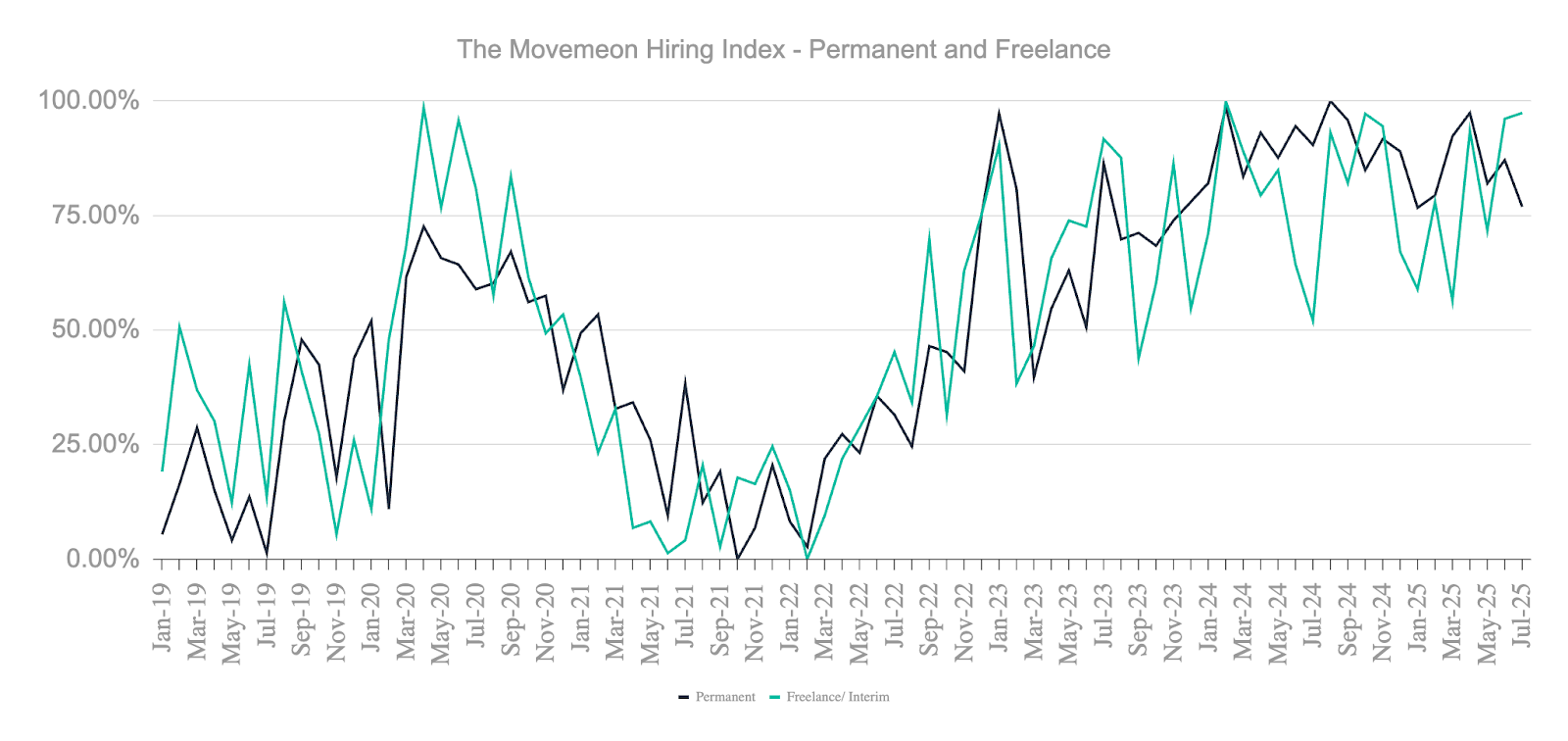


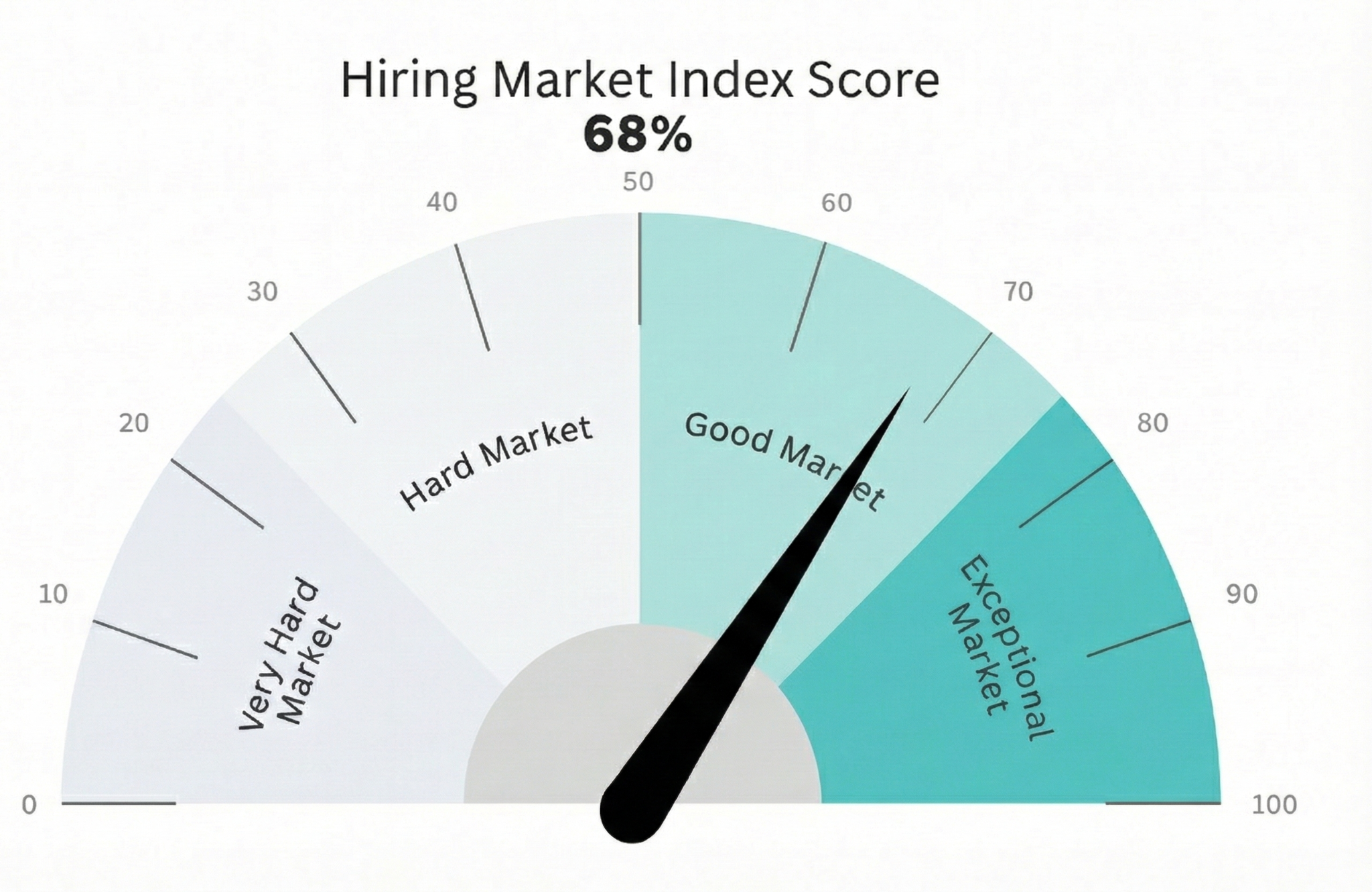
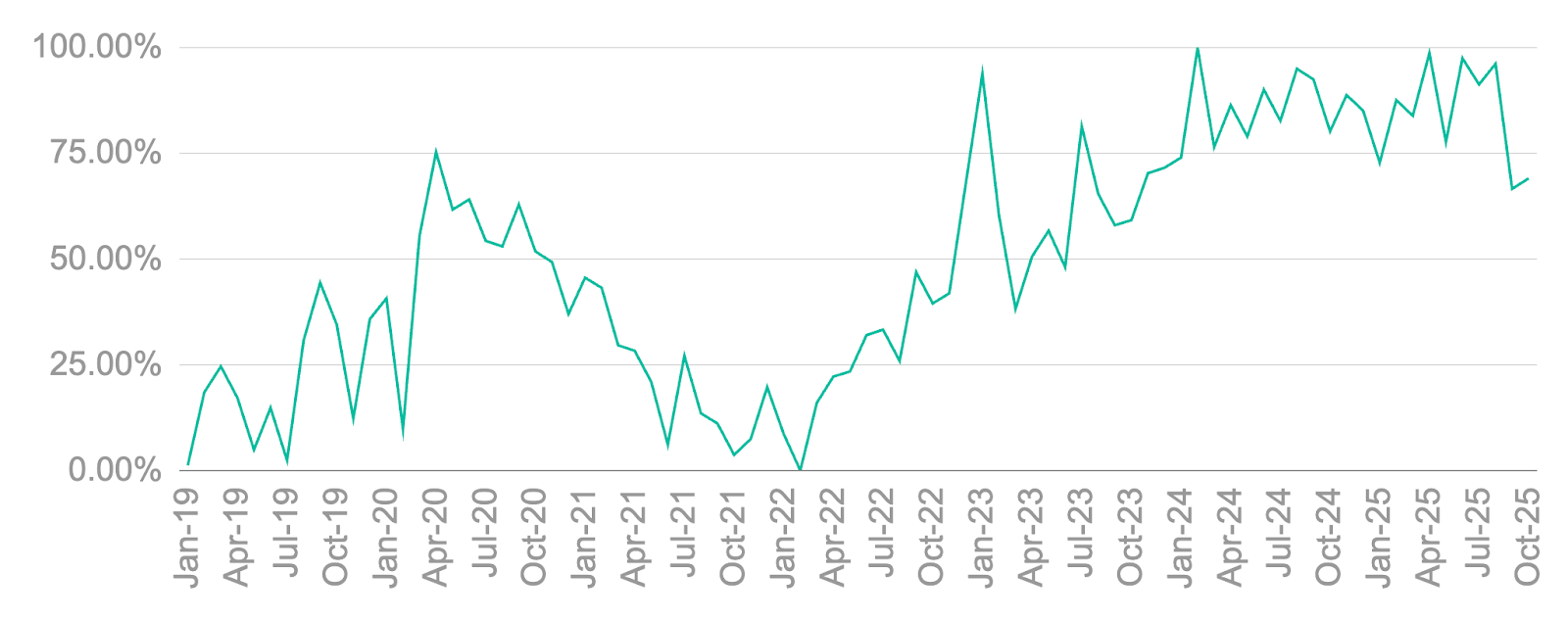
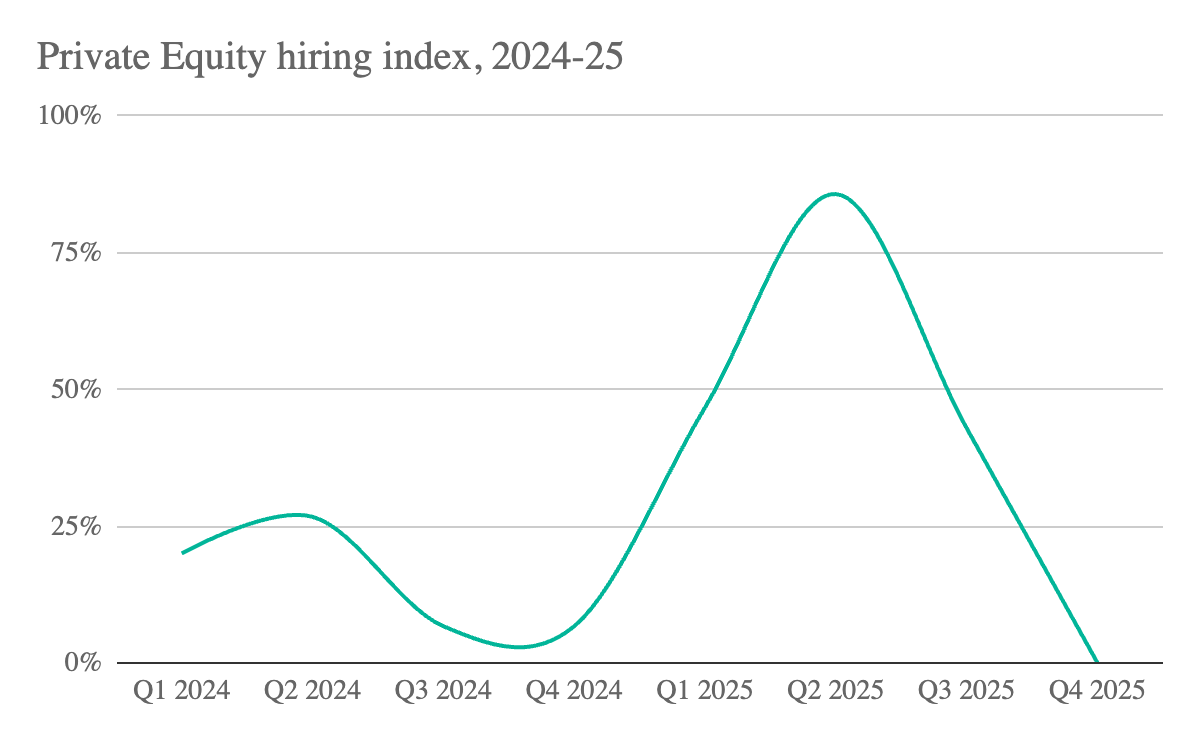
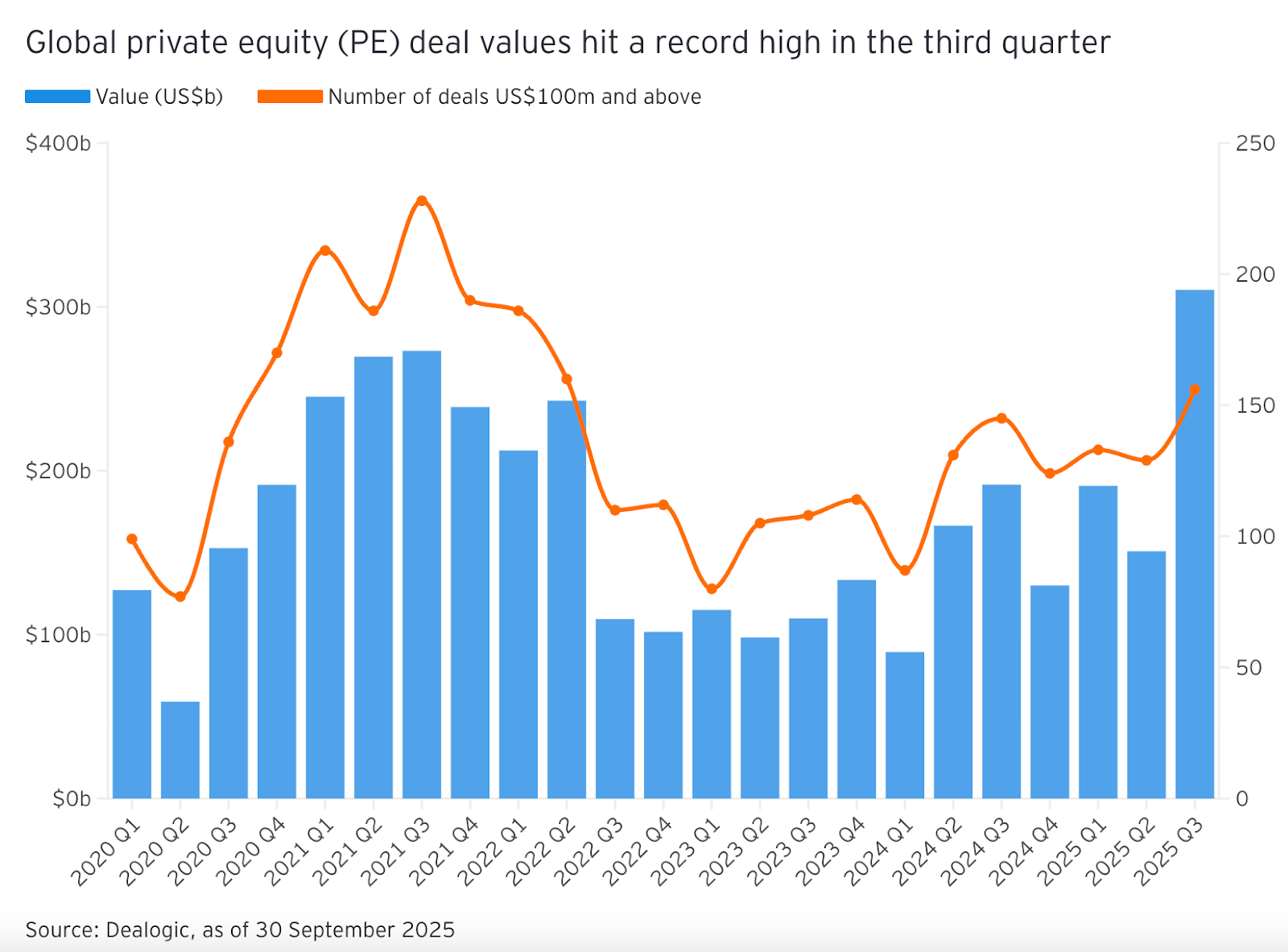
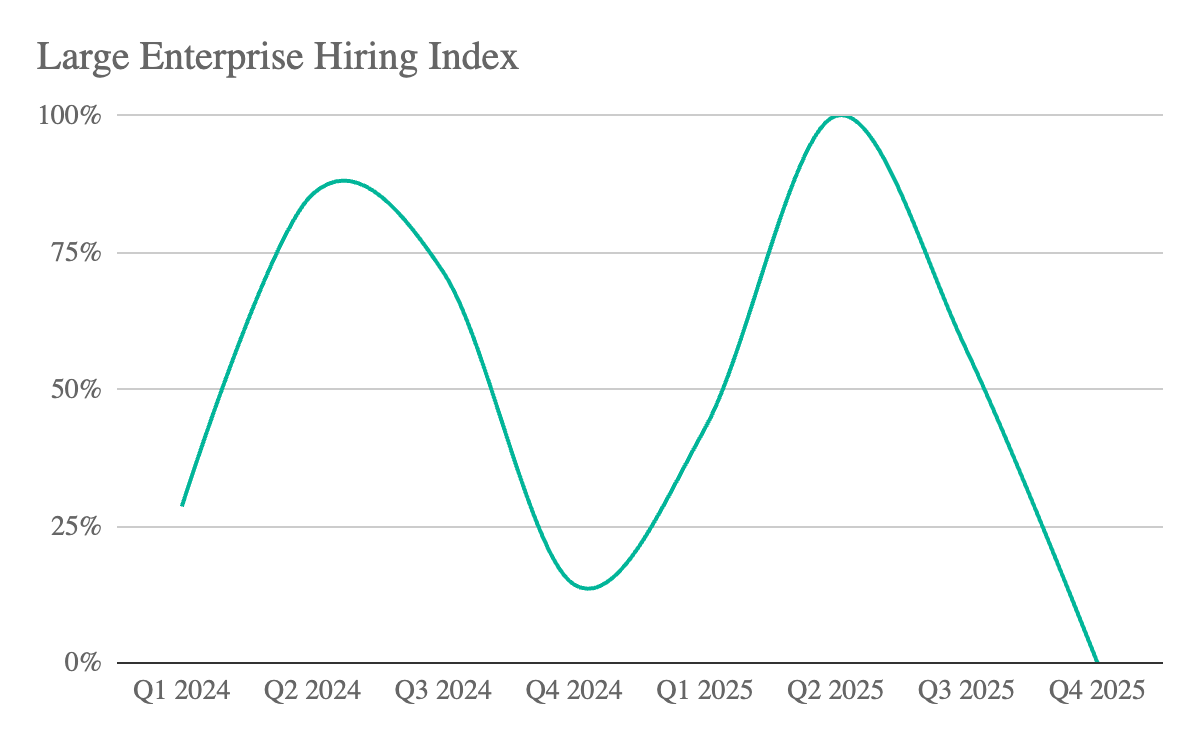
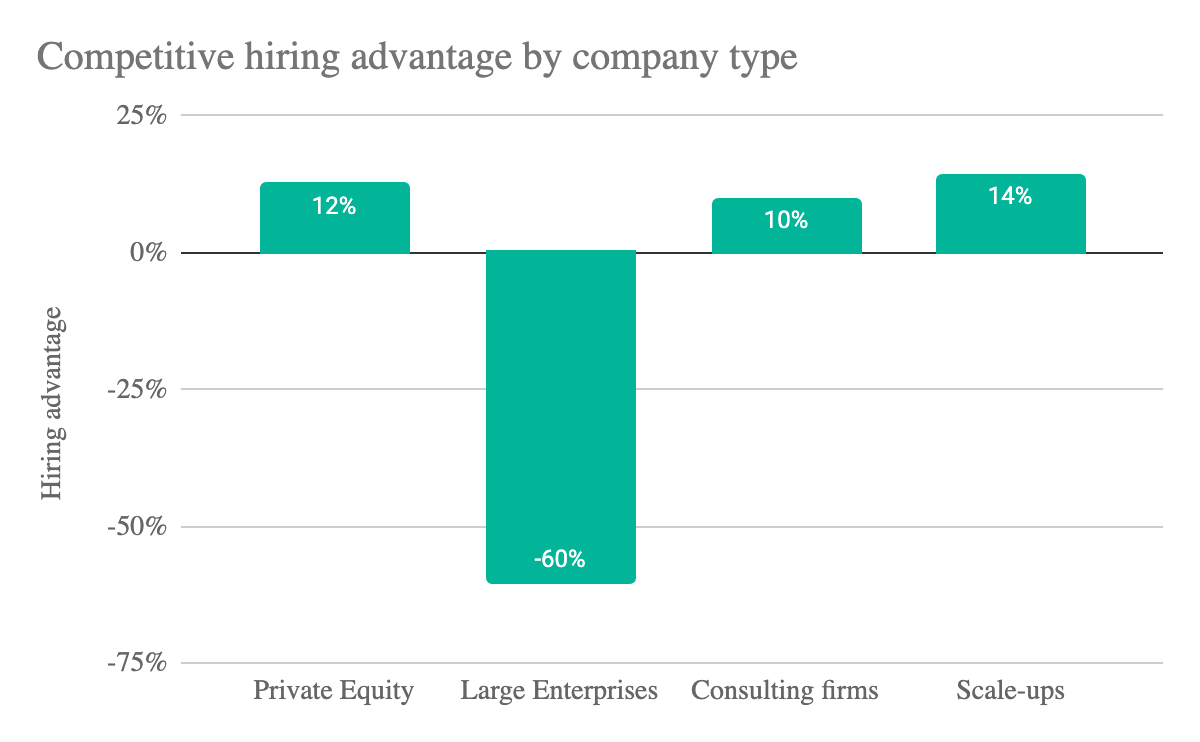
.jpg)

.png)

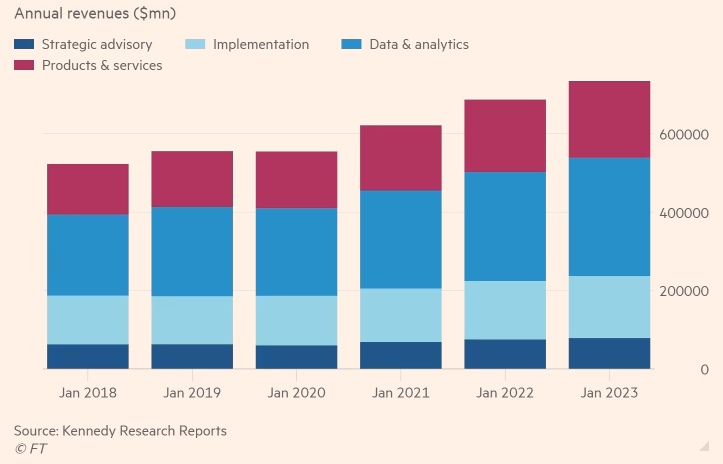
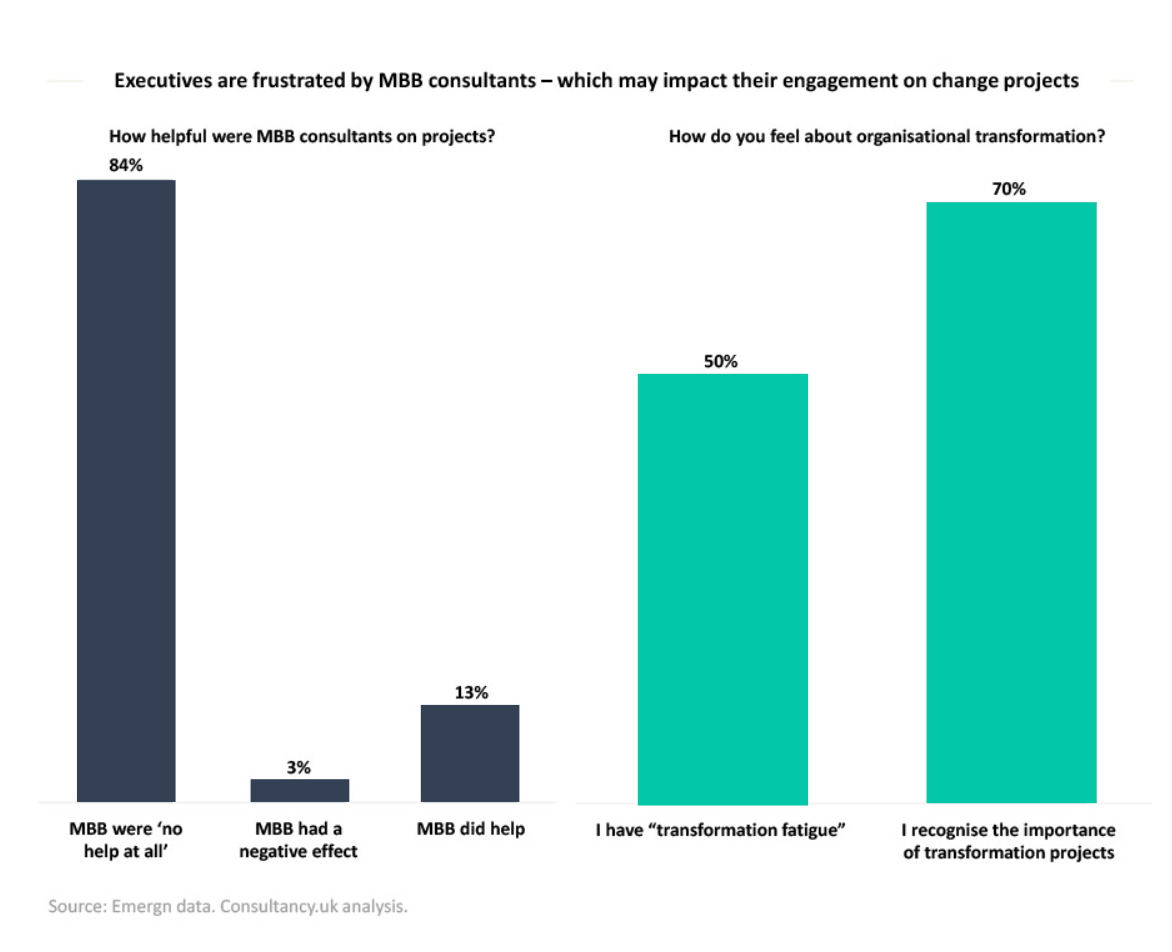
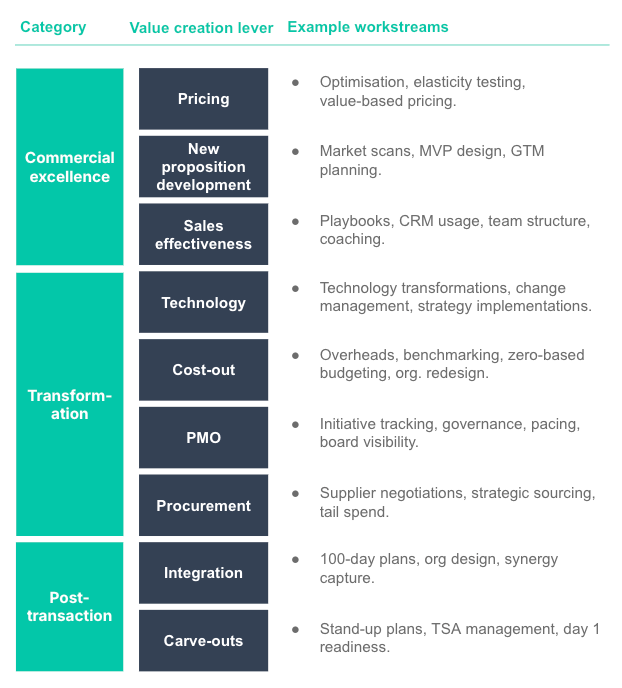
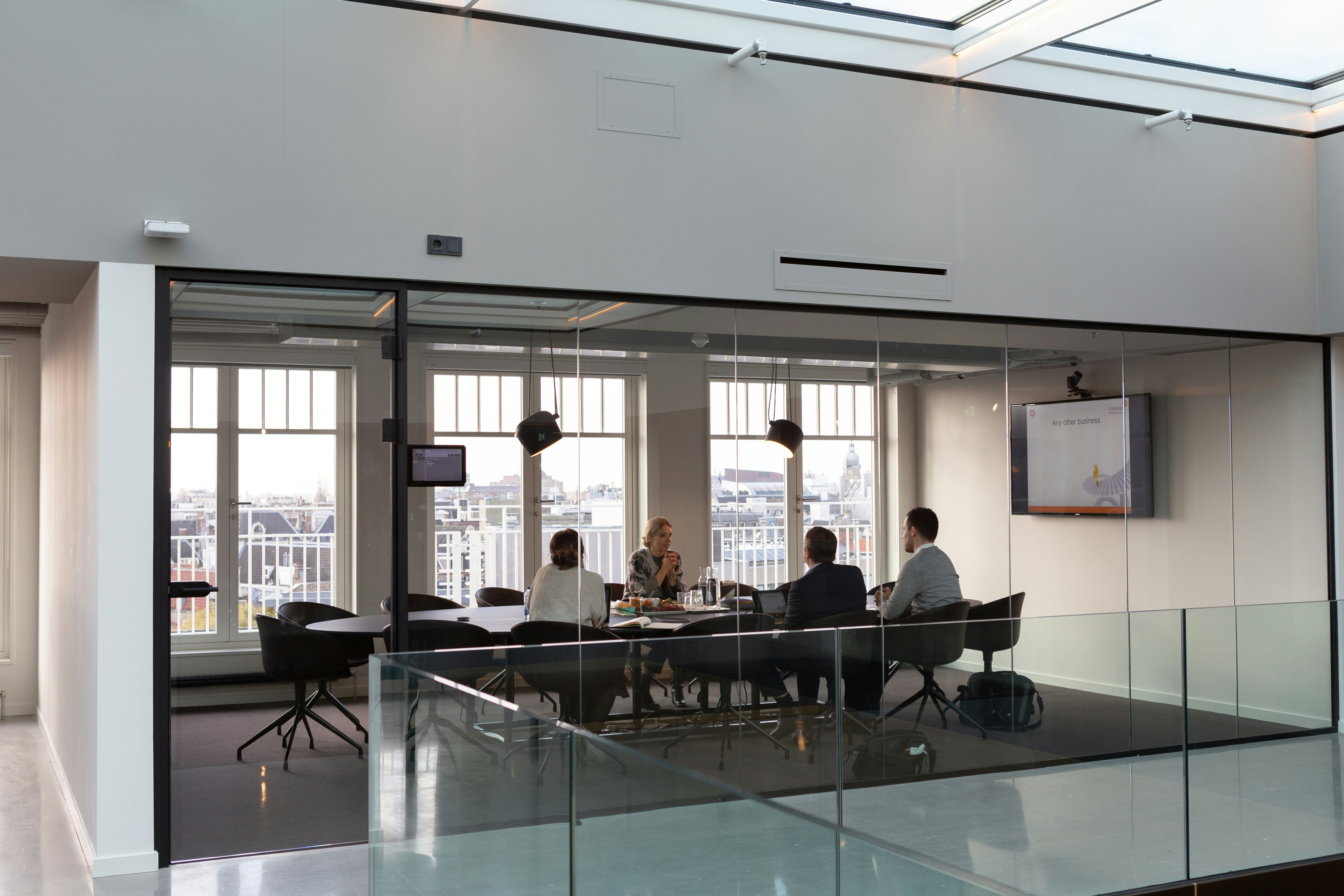
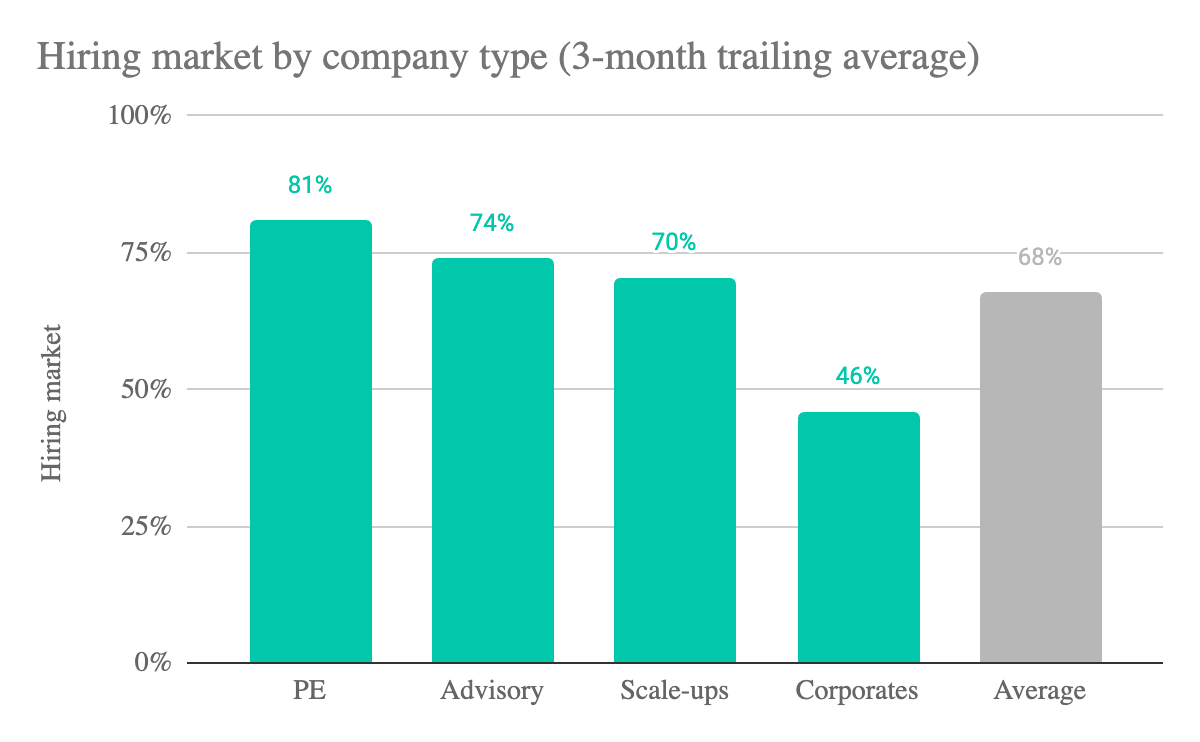
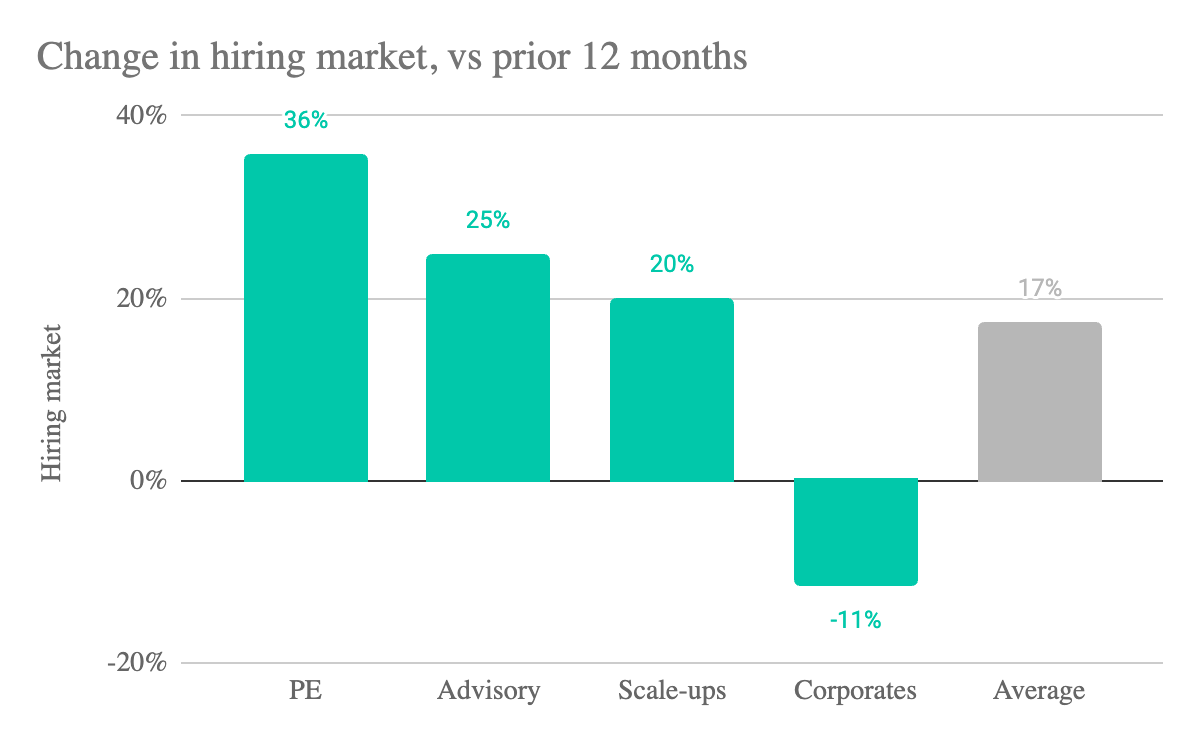


.jpg)
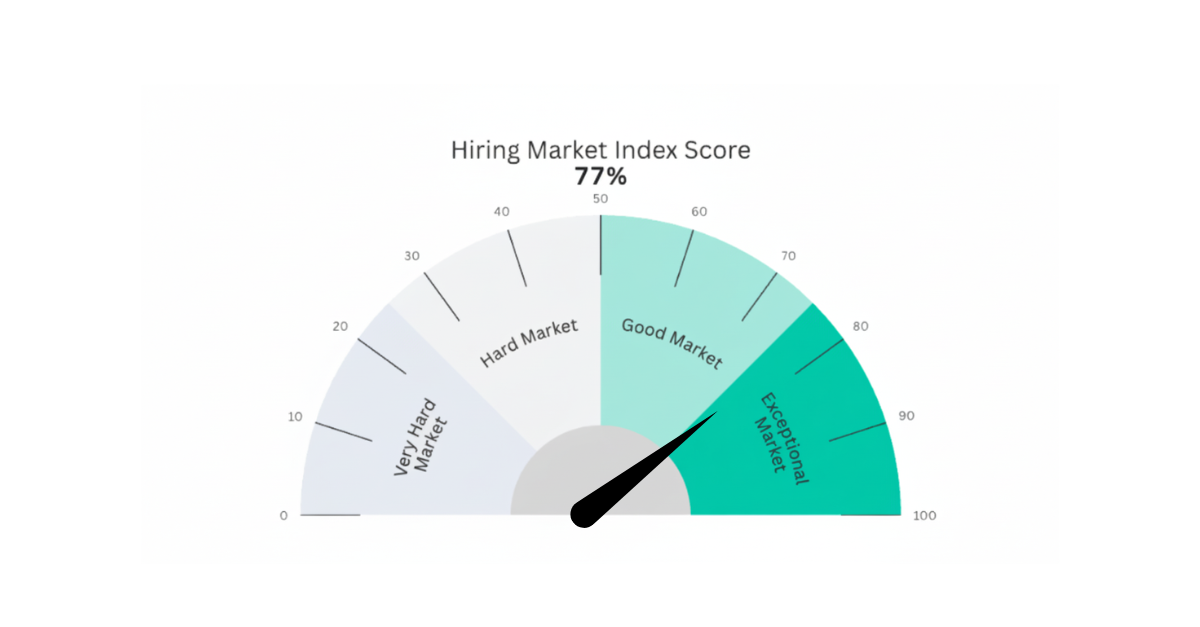
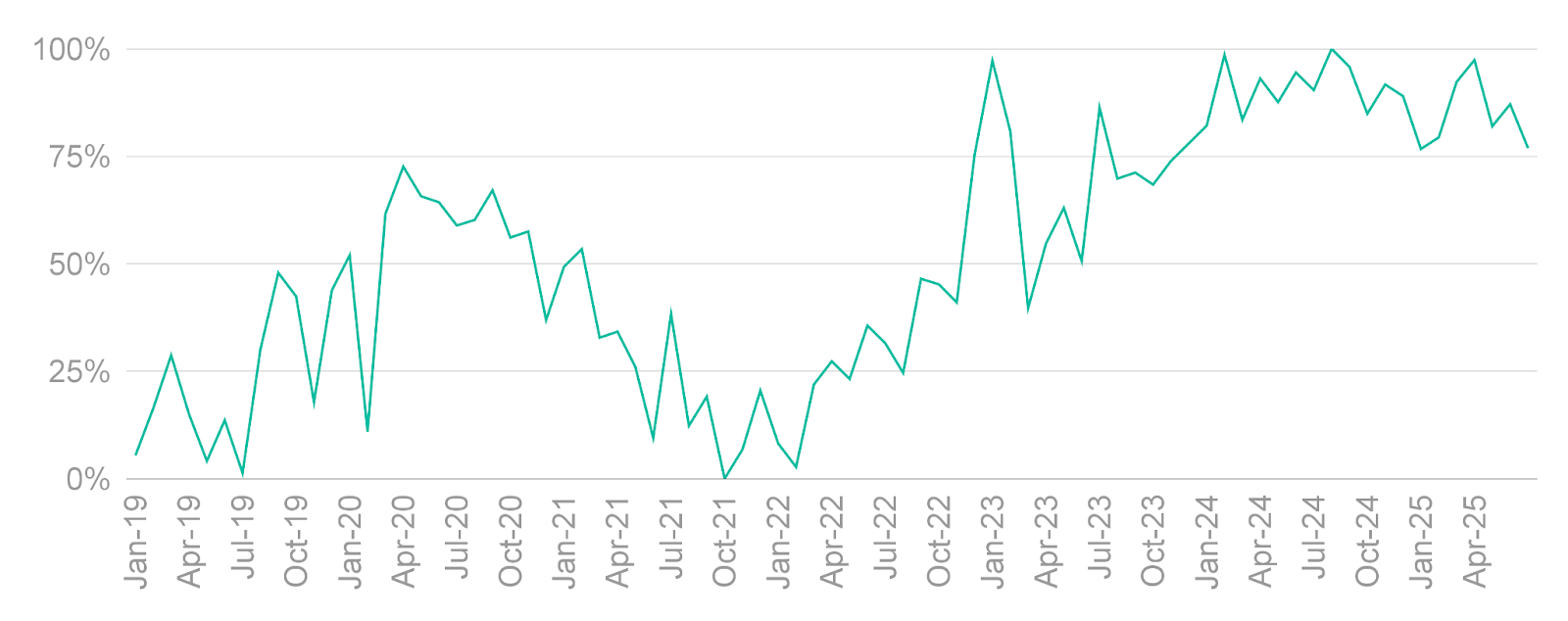
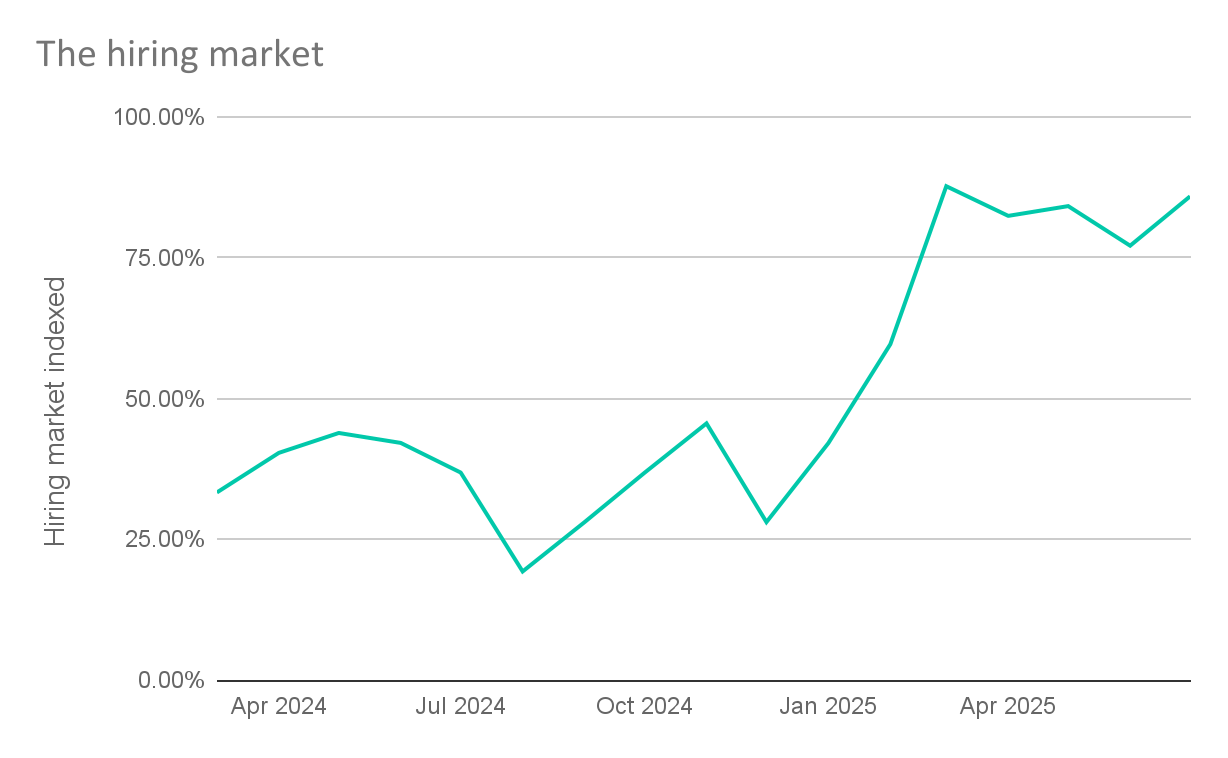



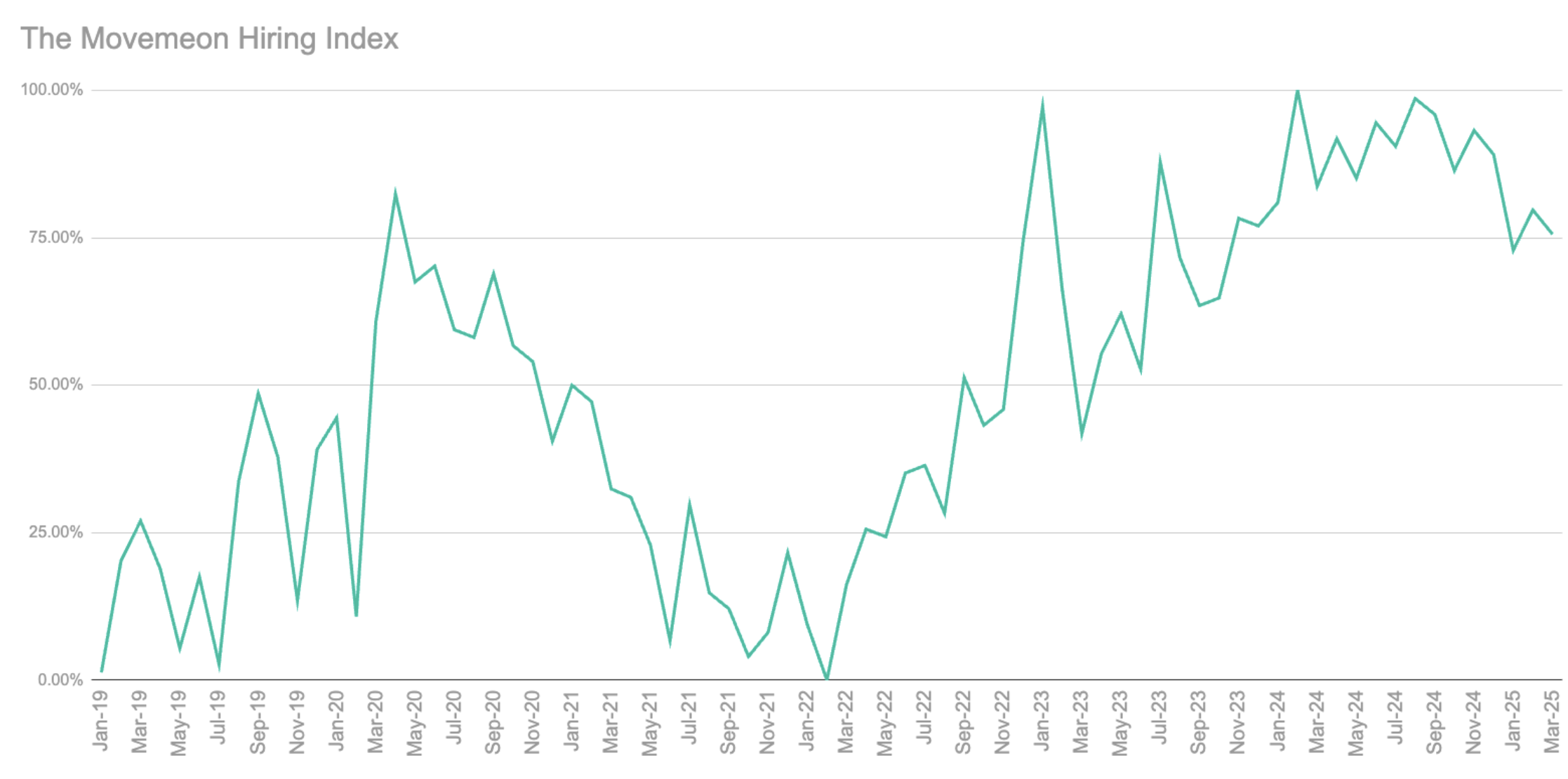







.jpg)

.png)
.png)





















.jpg)

